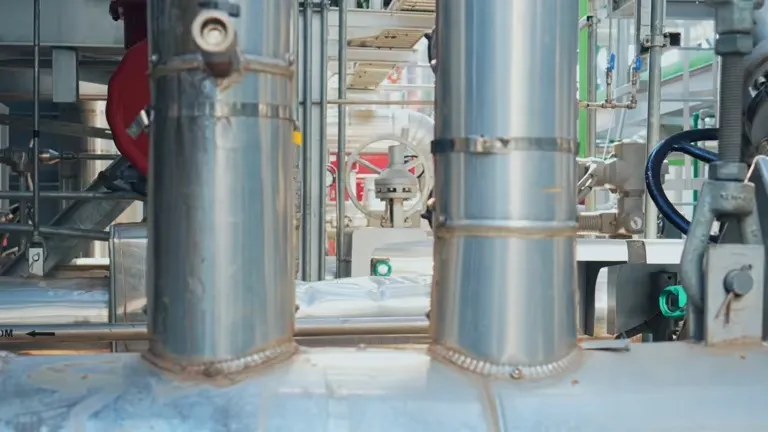
Boiler Tune-Up in East Hempfield, PA
Keeping your boiler running safely and efficiently is essential for East Hempfield homes, where cold winters and an older housing stock make reliable hydronic heating a priority. A professional boiler tune-up delivers a detailed system inspection, performance testing, and targeted adjustments that reduce energy use, prevent midseason breakdowns, and extend equipment life.
Common boiler problems in East Hempfield homes
- Reduced heat output or uneven heating - often caused by fouled burners, clogged air vents, or trapped air in radiators.
- Frequent cycling or short-cycling - a sign of improper combustion, thermostat issues, or incorrect water pressure.
- Soot, smoky odor, or darker flue gases - indicates incomplete combustion and a potential carbon monoxide risk.
- Pilot or ignition failures - dirty pilots, weak ignition components, or control failures.
- Leaks, scale, or corrosion - common in older systems and in areas with hard water or minimal treatment.
- Safety or control faults - malfunctioning pressure relief valves, low-water cutoffs, or expansion tanks.
What a complete boiler tune-up package covers
A full boiler tune-up in East Hempfield, PA focuses on safety, efficiency, and reliability through hands-on inspection and testing of key components.
- Detailed system inspection
- Visual check of boiler, controls, pumps, valves, expansion tank, piping, and radiators.
- Look for leaks, corrosion, insulation gaps, and signs of moisture intrusion that are common in local basements and utility rooms.
- Combustion and efficiency testing
- Measure flue gas composition (O2, CO, CO2) and draft to confirm proper combustion and safe venting.
- Determine combustion efficiency and compare readings to manufacturer specifications.
- Burner and pilot adjustments
- Adjust burner settings, electrode gap, and flame pattern for optimal combustion.
- Clean and test pilot light or electronic ignition components for reliable start-up.
- Cleaning of critical components
- Remove soot and scale from the heat exchanger and combustion chamber to restore heat transfer.
- Clean burner assembly, electrodes, and flame sensors.
- Pressure and safety control checks
- Test pressure relief valve, boiler pressure, expansion tank operation, and low-water cutoff.
- Inspect and exercise safety controls and thermostat response.
- Vent and chimney inspection
- Confirm venting paths are clear, draft is correct, and chimney connections are secure — especially important for older chimneys found in East Hempfield homes.
- System optimization and performance checks
- Verify pump operation, bleed radiators if present, and balance system where needed.
- Provide baseline and after-service performance readings so you can see measurable improvement.
- Maintenance notes and homeowner guidance
- A written summary of findings, recommended next steps, and practical tips for day-to-day efficiency and safety.
Typical diagnostic process and what to expect
- Technician arrival and safety assessment: visual inspection and CO detector check.
- Warm-up and baseline readings: capture operating pressures, temperatures, and combustion values with the system under load.
- Component servicing: cleaning, adjustments, and small part replacements as required for safe operation.
- Final verification: re-test combustion and pressure controls, confirm system is stable and operating at improved efficiency.
- Walkthrough: explain findings, provide maintenance recommendations, and document results.
Most tune-ups take about 60 to 120 minutes depending on the boiler model, age, and how accessible components are. Older or heavily sooted systems may require extra time.
Performance optimization tips for East Hempfield homeowners
- Bleed radiators and purge air regularly to maintain even heat distribution and reduce pump strain.
- Insulate exposed hot water pipes in basements and crawl spaces to reduce standby heat loss during Lancaster County winters.
- Use a consistent thermostat schedule and consider a programmable thermostat to reduce fuel use while maintaining comfort.
- Check for drafts and insulation gaps around windows and doors; improving home envelope reduces boiler runtime.
- Test carbon monoxide detectors annually and whenever you suspect combustion problems.
- Consider water treatment or a boiler flush if scale or corrosion is present; this improves heat transfer and extends component life.
Expected benefits — what a tune-up delivers
- Lower energy bills - improved combustion and cleaner heat exchangers return more heat to the home, often producing measurable fuel savings.
- Fewer unexpected breakdowns - worn parts and emerging issues are identified and corrected before they develop into costly failures.
- Longer equipment life - regular cleaning and adjustments reduce stress on pumps, burners, and controls.
- Improved comfort and reliability - faster recovery times, more consistent radiators, and stable system pressures.
- Enhanced safety - reduced risk of carbon monoxide exposure and verified operation of safety controls and relief devices.
- Documentation for warranties and home resale - service records demonstrate care and can support warranty claims or property value.
How tune-ups fit into preventive maintenance plans
Annual boiler tune-ups are a cornerstone of preventive maintenance, especially in colder regions like East Hempfield where boilers run hard during winter. For many homes an annual inspection before heating season is sufficient. Homes with older boilers, hard water issues, or heavy usage may benefit from biannual visits and periodic system flushing. A structured maintenance plan typically includes scheduled inspections, priority scheduling during peak season, and documented service visits to support long-term reliability.
Regular tune-ups reduce total lifecycle cost by minimizing emergency repairs and preserving efficiency. They also provide clear data to help homeowners decide whether repair, partial component replacement, or full system replacement is the most economical next step.


Enjoy flexible financing options that make upgrading or repairing your HVAC system easy and budget-friendly.










